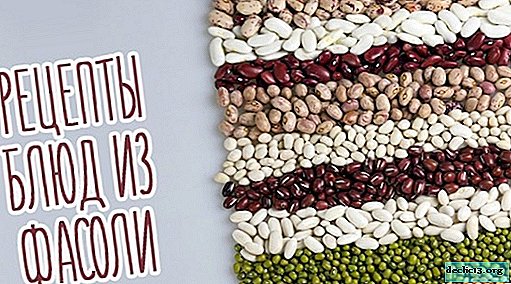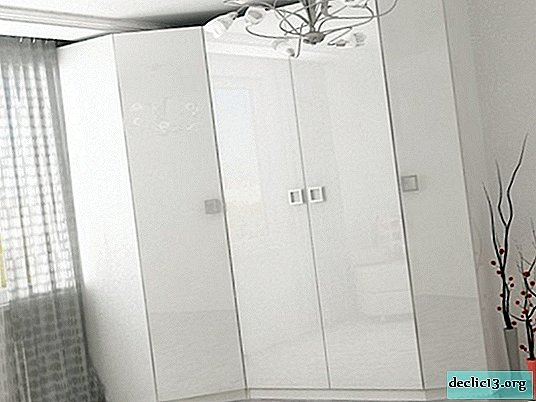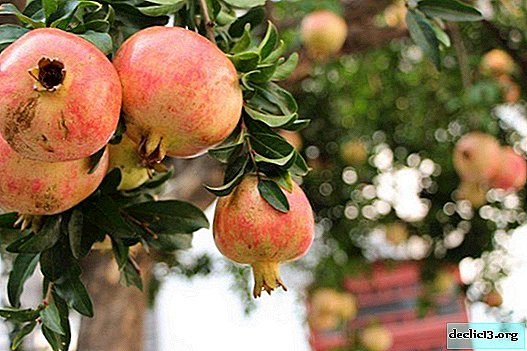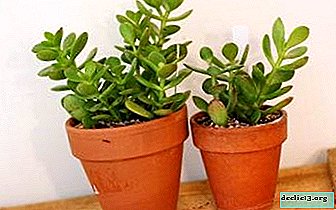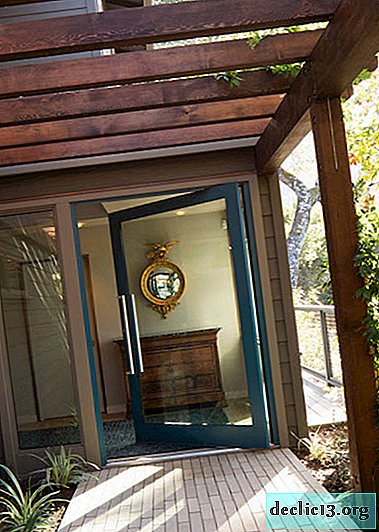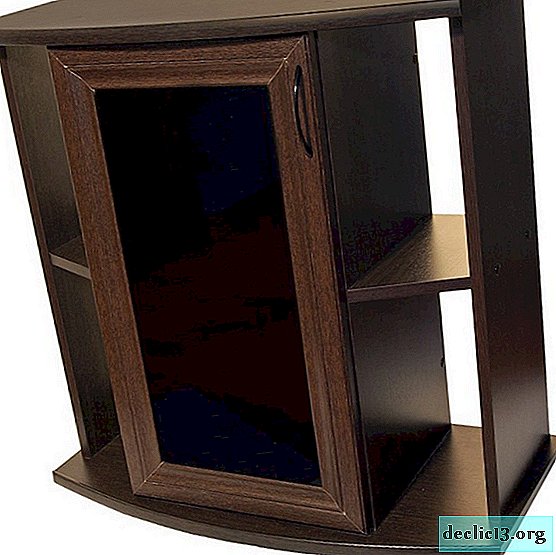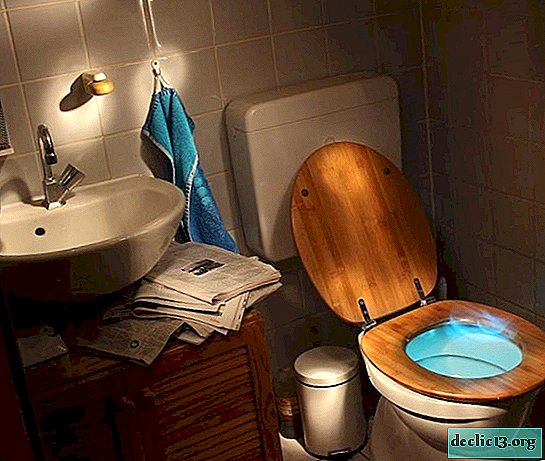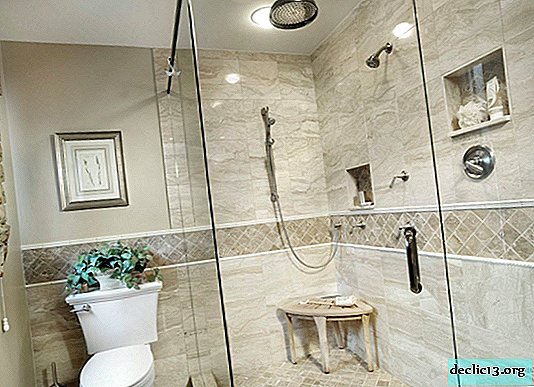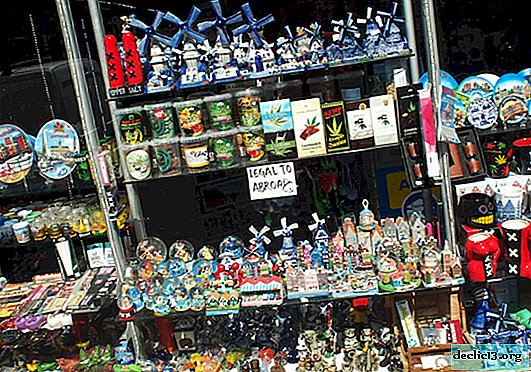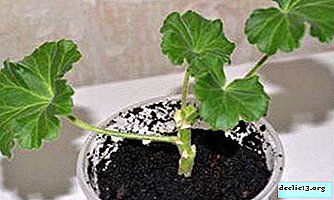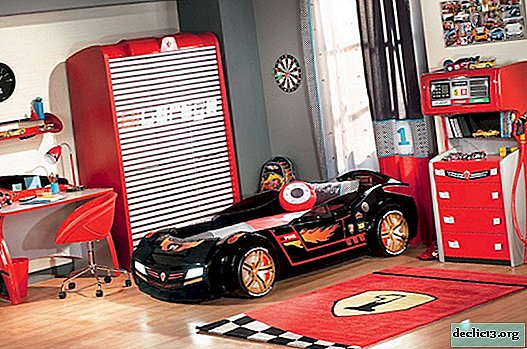Features of furniture PVC edges, what options exist
After cutting parts from chipboard or MDF, further processing is required. The end face of the plate has a sloppy appearance. The edges of the material without protection are prone to chips and other defects. The unprotected part of the laminated coating easily absorbs moisture, which leads to deformation of the part. In addition, an open cut is a source of secretions of substances harmful to health. These reasons led to the adoption of an industry standard for the mandatory protection of the end face of all types of wood-based blanks with a special coating. One of the best materials for processing furniture parts is the PVC furniture edge, which has a number of significant advantages.
Application area
PVC edge is used to process the ends of all types of furniture. The operational characteristics of the material have become the reason for the widespread use in the production of the following products:
- Office furniture;
- Kitchen sets;
- Furniture for children's rooms;
- Products for trade, entertainment, advertising organizations;
- In the manufacture of furniture for manufacturing enterprises;
- For the production of products used in the hotel business, restaurants, bars and other catering establishments;
- Common household furniture, including living and sleeping sets.
The edge of PVC for furniture is considered to be a better, more durable protection of the end of the part. The finished product looks neat, solid and reliable. The service life in comparison with melamine tape is significantly longer.
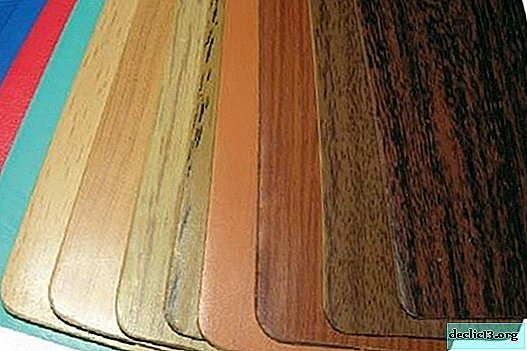

Material Features
Products are delivered in bays from 50 to 500 meters. However, for domestic needs, you can purchase it with the meter in the right amount. PVC edge banding for furniture is available in the sale from 19 mm to 55 mm wide, but for specialized productions non-standard sizes from 11 to 110 mm are supplied. Thickness is from 0.4 to 5 mm.
For a long time, the products did not differ in a rich assortment in color and texture. According to this indicator, she lost to melamine analogues. However, today manufacturers provide a decent list of products suitable for almost all types of laminated coatings of furniture plates.
Finding products with an adhesive layer of PVC edge for furniture is problematic. The fact is that it is intended mainly for industrial enterprises, where the gluing operation is done on special equipment.
 By hue and color
By hue and color To size
To sizeSelection rules
Are guided when searching for the desired brand of edges for technical and aesthetic qualities. The thicker the tape, the better the protection of the end of the furniture part from damage. This serves as the basis for choosing a specific type of edge. In contrast to the melamine analogue, where this parameter has practically no effect on changes in the dimensions of the parts after the tape sticker, PVC products can significantly change the dimensions of the workpiece. This factor must be considered when buying.
PVC edge in most cases is selected according to the texture and color of the base laminated coating of furniture plates. But in some cases, it is justified to use other, often contrasting colors and shades for greater originality of the finished product. The final word in this matter belongs to the designer. The home master will have to rely on his own taste.


Home Sticker Technology
The material is characterized by high wear resistance and with high ductility is difficult to process manually. PVC edge is designed for stickers on furniture parts using special equipment. When using the edge banding machine there is no fundamental difference; melamine or polyvinyl chloride tape is inserted into the feed mechanism. With manual sizing, a number of difficulties arise, which can be dealt with only by making considerable efforts and possessing some knowledge and skills.
The absence of an adhesive layer puts the artist in front of a difficult choice: how to fix the edge on the part with minimal effort. The following options are possible:
- The use of contact adhesive type "moment". A layer is applied to adjacent surfaces and after keeping the recommended time, the parts are pressed tightly against each other;
- Use of general purpose adhesives. The technology depends on the fixation mode proposed by the manufacturer. The process is time consuming and time consuming. After applying the adhesive composition, it is necessary to ensure a tight pressing of the parts for the period specified in the instructions;
- The use of a glue gun. For work, the use of polypropylene, polyethylene rods with a working temperature of 150 to 200 ° C is allowed;
- Use of hot melt adhesive. In order to implement this method will require experience, skills and a lot of patience. Difficulties arise when applying an adhesive layer to the end of a furniture part and maintaining the optimum temperature at the time of fixing the PVC edge.
Do not use a conventional ethylene vinyl acetate glue gun. Poor adhesion and bond strength will make the job useless. Even with a little physical exertion, the edge will peel off.
After the edge is fixed on the part, it is necessary to remove the overhangs. This is done with a special device or with a manual milling machine. Surplus edges with a thickness of 0.4 mm can be cut with a knife. The edge of the blade is tightly pressed against the surface of the part parallel to its surface. It is better to use not a clerical, but a shoe knife with a polished side, which is conducted along the laminate.
Experienced craftsmen sometimes cut off the edge of 2-4 mm with a knife, preheating the PVC tape, thereby increasing its ductility. However, the adhesive layer should not be heated to critical temperatures. The method requires skill and before doing pruning overhangs on furniture details, it is better to experiment with existing waste.
The final fine-tuning is done either with a fine sandpaper or with felt. The latter option is preferable. The facet turns out to be of better quality, minor defects, scratches are polished, glue residues are removed. In this case, the laminated surface will not be affected.
 Tools and materials
Tools and materials Select the edge and cut to size
Select the edge and cut to size Hold the iron on the coating
Hold the iron on the coating Iron the warm edge with a dry cloth
Iron the warm edge with a dry cloth We process the ends of the plate
We process the ends of the plate We process sandpaper
We process sandpaper
